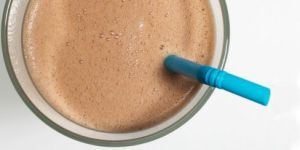Article
Formula Diet Helps Knee Osteoarthritis Patients Lose Weight Safely
Author(s):
A strictly controlled diet allowed obese knee osteoarthritis patients to lose weight while increasing levels of key nutrients and maintaining total bone mineral content and bone mineral density, researchers in Denmark have found.

A strictly controlled diet allowed obese knee osteoarthritis (OA) patients to lose weight while increasing levels of key nutrients and maintaining total bone mineral content and bone mineral density, researchers in Denmark have found.
Due to their immobility, knee OA patients frequently have trouble losing weight through exercise. Moreover, weight loss through dieting has been associated with a potentially deleterious loss of nutrients, muscle mass, and bone in obese individuals. To gauge the potential for safe weight loss in obese knee OA patients, researchers at the Parker Institute at Copenhagen University Hospital at Frederiksberk in Denmark set up a study.
The study included a prospective cohort of 192 sedentary obese knee OA patients over the age of 50. During the first eight weeks of the study, participants were stuck to a low-energy diet with a maximum of 810 calories per day provided in powder packets mixed into water or skim milk. (The packets were provided by their manufacturer, the Cambridge Weight Plan.) During the second eight weeks of the study, participants were on a hypo-energetic diet of approximately 1,200 calories per day with two formula diet products per day added to the original powder packets.
Of the 191 initial participants, 175 (91%) completed the study, 142 of whom were women. The mean age of participants was 62.6 years, their mean baseline weight was 102.4 kg, and their mean body mass index was 37.1. Over the entire 16-week duration of the study, the participants had lost an average of 14.0 kg, only 13% of which was lean body mass, with increased levels of vitamin D and vitamin B12 and stable levels of ferritin. In addition, participants’ bone mineral content remained unchanged while their bone mineral density increased.
The study was published online yesterday by the European Journal of Clinical Nutrition.




